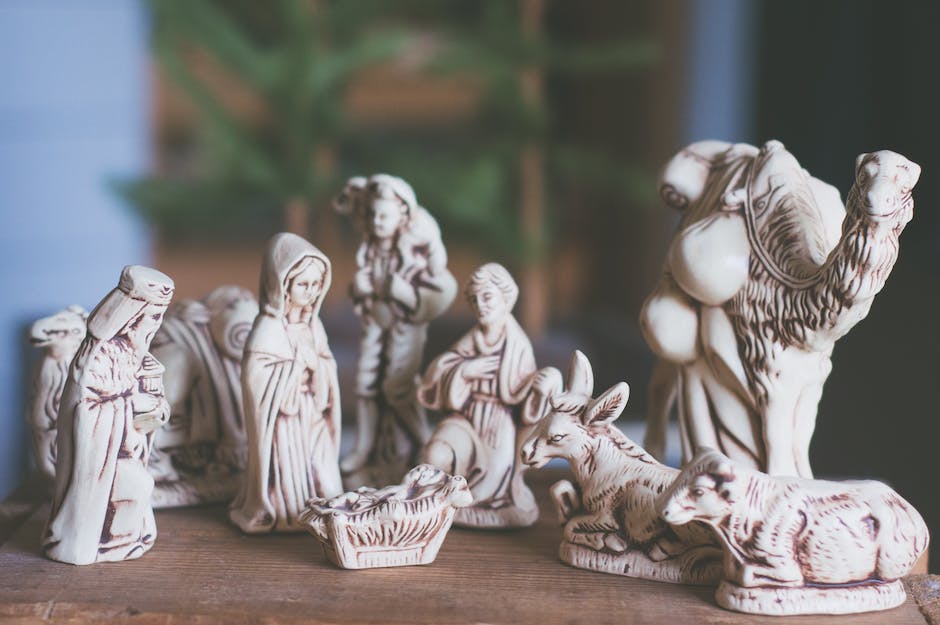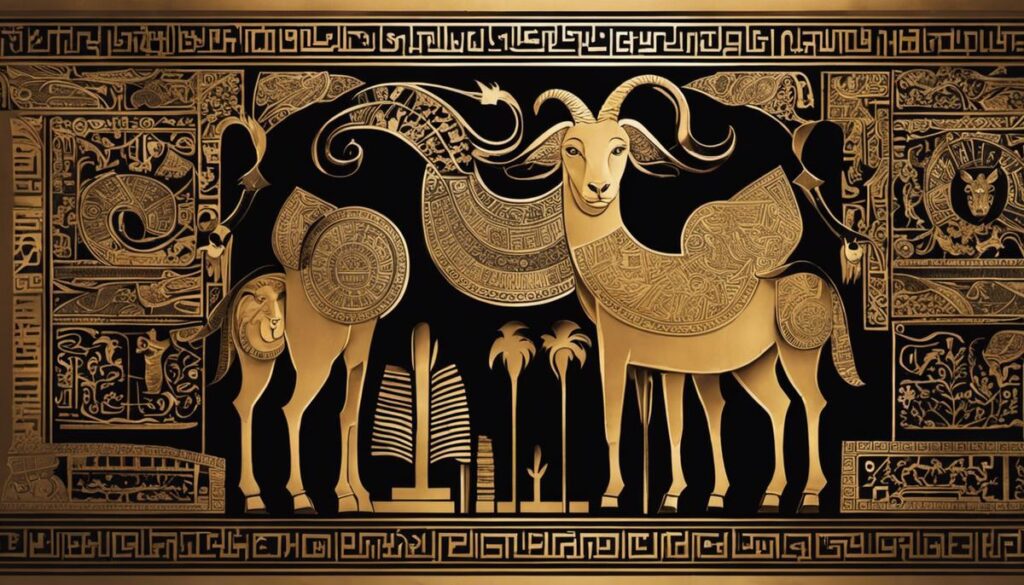Dreams have been a subject of intrigue and interpretation since ancient times, and the Bible is no exception in its rich accounts of significant dreams experienced and deciphered by key figures. Out of the innumerable dream symbols, a somewhat obscure yet intriguing one, is the occurrence of a dog bite. Dogs, a recurring motif within both the Old and New Testament, accompanied by the action of biting, evoke a potpourri of interpretations from the biblical perspective. This discourse aims to elucidate the biblical meaning and significance of such dream experiences, exploring the symbolism of dogs and bites, analyzing dream interpretation from a biblical standpoint, and understanding these through the lens of divine revelations to major biblical figures.
The biblical significance of dogs and bites
Unleashing Gospel Insights: Dog and Bite Symbolism in The Bible
Bring into the mix a passion for theology and a penchant for our canine friends, you’ve got a fascinating exploration of dogs and bite symbolism in the Holy Scriptures. Besides being man’s best friend, dogs embody more profound spiritual implications within the Christian milieu. So, let’s dig into this hidden world of biblical metaphors!
In the Biblical context, dogs are often portrayed with ambivalence, serving as both symbols of loyalty and uncleanliness, mirroring the eclectic representation in many ancient cultures. The dog’s unwavering loyalty to its master makes it a metaphor for the duty and love the faithful should possess for God, as seen in Tobit 5:16. However, this noble visage should not overshadow the fact that dogs were also often used to represent something impure or unholy.
Reflecting on the dietary customs of the Jewish tradition, dogs were deemed unclean animals. Emphasizing this notion, Bible verses like Revelation 22:15 often use ‘dogs’ to portray non-believers or those living in sin. This symbolic narrative is also observed in the Old Testament book of I Samuel 24:14, where ‘dog’ refers to a person of low regard or ill-repute.
Transitioning to bite symbolism, it embodies a deeper and to an extent, more insidious metaphorical value in the Bible, symbolizing deceit, betrayal, and harm. The proverb in Ecclesiastes 10:8, “He that diggeth a pit shall fall into it; and whoso breaketh a hedge, a serpent shall bite him,” serves as a stern warning of the potential harm that can befall when disrupting harmony or breaking trust.
Moreover, the vindictive bite of dogs in Psalms 22:16, “For dogs have compassed me: the assembly of the wicked have enclosed me: they pierced my hands and my feet,” is symbolic of the assault on righteous individuals by the wicked.
This exploration of biblical metaphors associates dogs with dualistic spiritual notions of loyalty and impurity, while bites carry the essence of deceit and harm. Herein lies the charm of Bible study, revealing layers of intricate meanings hidden within plain sight. Like treasure hunters, enthusiasts must dig through the sand to uncover the spiritual gold of biblical wisdom. With every new revelation, the mind broadens, the spirit strengthens, and an old text becomes ever-new with profound understanding.

Analyzing Dreams from a Biblical Perspective
Biblical Dream Analysis: Unlocking the Code of Canine Symbolism
Biblical dream analysis is an unrivaled pathway to a profound understanding of our subconscious minds. It is woven into the fabric of our collective faith heritage, providing deeply symbolic narratives dreamt in the night’s embrace—often leaving the dreamer to seek for a discernable meaning.
One symbol in particular that appears frequently in biblical accounts and, by extension, in biblical dreams, is the canine figure. With many usages and depictions in the scriptures, dogs prove an intriguing symbol when they manifest in your slumber. But what does it mean to dream about dogs in the context of biblical symbolism?
The Old Testament provides us with the perfect framework to explore this. Specifically, by unraveling the rich subtext associated with canines in the book of Job and Proverbs.
The proverbial dog “returning to its vomit” (Proverbs 26:11) best encapsulates a depiction of spiritual relapse or stagnation. Should a dog appear in a dream with this associated behavior, it could signify a need for vigilance against returning to old, harmful behaviors or patterns.
Despite much of the biblical narrative having a less-than-flattering view of dogs, the book of Job presents a different perspective. In Job 30:1, dogs are associated with societal outcasts. In a dream, this could signify feelings of ostracization or loneliness. But, it also holds a deeper significance. The biblical narrative often embraces the lowly and the outcast, signifying those who have the ability to rise again, put right their wrongs and eventually realize their true potential.
Another fascinating aspect of canine symbolism in the Bible is their social nature. Dogs are pack animals, they thrive in community. This idea mechanically translates to the human need for community, companionship, and mutual support. When dogs appear in dreams, it might indeed symbolize a longing for connectivity, companionship or hint at the importance of keeping good company.
Realizing the multi-faceted symbolism associated with dogs in the scriptures helps to add depth to biblical dream analysis. Exploration of the roles dogs play in the Bible provides valuable insight into what they could symbolize in our dreams.
Associating biblical instances with dreams allows us to dive deeper, beyond the immediate image and towards the hidden meaning. The tangled web of biblical dream symbols speaks to the intricate depth of the human psyche, and further delving into this analysis invites us to learn more about ourselves, our spiritual journey, and our relationship with God.
Always remember, interpretation is highly personal. Just as parables provided understanding through common experiences, personal symbols may not align strictly with traditional interpretations. So, if dogs appear in your dreams, consider the context, assess all possible meanings, and align them with your own experiences. This will undoubtedly offer you a comprehensive approach to understanding your subconscious mind and its divine promptings.
Biblical dream analysis is, therefore, less of interpretation and more about introspection, a spiritual journey, both faith-enriching, and self-revealing. Surely, this fascinating study is one that will leave you brimming with new knowledge and a profound sense of the interconnectedness between the spiritual and psychological realms of your existence.

Key biblical figures who experienced dreams and their interpretations
Now, transitioning from dream analysis endowed with canine symbolism, we delve into the bible’s exceptional figures who likewise experienced significant dreams and their interpretations. Appreciating these divine dream encounters further enhances our understanding of the interconnectedness between our subconscious minds and the spiritual realm.
A key figure in the Bible who had notable dreams is Joseph, the favorite son of Jacob. Repeatedly in Genesis, it’s recounted that Joseph’s dreams foretold his future, setting the path for his rise to power in Egypt. Joseph’s innate ability of interpreting dreams was instrumental in deciphering Pharaoh’s dream of seven gaunt cows swallowing up seven healthy ones. The interpretation highlighted that seven plentiful years would precede a seven-year famine, prompting Pharaoh to prepare, thereby sparing his kingdom undue hardship.
Moving further into the Bible, we encounter yet another famous dream in the Book of Daniel. King Nebuchadnezzar had a dream of a colossal statue with a golden head, silver chest, brass thighs, iron legs, and feet composed of iron and clay. Daniel, endowed with spiritual wisdom, interpreted the dream, forecasting the rise and fall of empires, revealing much about human history and God’s ultimate plan.
In the New Testament, dreams serve as direct divine intervention, a standout moment with profound meaning. Matthew recounts Joseph’s – the earthly father of Jesus – dream, where an angel informed him of Mary’s divine pregnancy, instructing him to take her as his wife. This vision and its interpretation played a vital role in ensuring Jesus’ safety, showcasing the importance of dreams in biblical narratives.
Yet, another scripturally significant dream is Pilate’s wife’s dream. Also documented in the Gospel of Matthew, she warned Pilate not to harm Jesus, influenced by a dream she deemed so troubling it kept her awake. Driven by the dream’s tormenting nature, her warning underlines how dreams can serve as divine warnings or omens.
The manifestation of Apostle Peter’s vision of a sheet containing all kinds of animals is an emblematic example from the Book of Acts. Interpreted as a divine message advocating that God’s acceptance isn’t limited by cultural or religious boundaries, this dream solidified Peter’s resolve to preach to the Gentiles.
In closing, the richness of the dreams captured in the Bible and the subsequent interpretations showcase the immeasurable depth of human consciousness intertwined with our spiritual connection. By studying these numerous instances, one can unravel the hidden aspects of self, further unveil the essence of spirituality, and continue along the most enlightening spiritual journey.

Applying biblical dream interpretation to understand dog bite dreams
Delving deeper into the realm of biblical dream interpretation yields fascinating insights. Notably, the bible is replete with instances of dreams playing integral roles in the lives of biblical figures. One can’t forget Joseph’s vivid dreams and their interpretations in Genesis: the eleven stars, the sun and the moon that bowed to him, forecasting his future rise to power. This showcases the belief that dreams are divine messages knit in the tapestry of metaphors, waiting to be deciphered by those with discerning hearts and minds.
But what about dog-bite dreams? How does one interpret them through a biblical lens? Let’s explore that.
Taking a page from the book of Genesis, King Nebuchadnezzar’s dreams throw light on dream symbolism. Remember his dream of a colossal statue made of different metals? It was prophetic, symbolizing future empires. Such dream interpretations indicate that specific, unusual incidents occurring in a dream can offer deeper understanding relative to one’s life.
Consider a dog bite in a dream then. While it’s essential to focus on personal feelings during the dream, a biblical understanding helps layer the interpretation. Drawing on the various metaphors linked with dogs in the Bible, a dog bite could relate to feelings of betrayal, deception, and disruption of peace or harmony.
Moreover, moving into the New Testament period offers more enlightenment. Joseph’s dream concerning Mary’s divine pregnancy portrays dreams as conduits of divine guidance. A dog bite might then symbolically convey a need for spiritual vigilance or awakening.
Another nuance can be drawn from the disturbing dream of Pilate’s wife about Jesus. It serves as a warning, and so, a dog bite dream from a biblical perspective might also be seen as a divine warning against potential threats or spiritual unrest.
Apostle Peter’s vision in the Book of Acts of a sheet filled with various animals further elucidates the interpretation. It speaks of spiritual inclusivity and breaking down of religious barriers. Applying this, a dog bite dream might be prompting a revaluation of old beliefs or prejudices that hinder spiritual progress.
There is an obvious link between human consciousness and the spiritual realm, playing out vividly in dreams. Biblical dream interpretation empowers one to decode God’s wisdom conveyed through dreams. Remember, dream symbols are personal and vary from person to person; they are a call to embark on a journey of self-discovery, spiritual growth, and a deeper understanding of the vibrant tapestry of life.
A dog bite dream analyzed with biblical references serves not merely to perplex, but to illuminate, leading the dreamer on a path of spiritual refinement, awareness, and potentially, immense transformation. Such is the charm of biblical dream analysis, a fascinating journey of relational dynamics between the human self, the dreamscape, and the divine.
In conclusion, an exploration into dog bite dreams through a biblical lens is not just intriguing, but spiritually enlightening. It offers an interpretation that bridges the subconscious mind to spiritual insights, enriching one’s understanding of their spiritual journey and their unique relationship with God.

Dealing with dog bite dreams in a practical, faith-based manner

Understanding the biblical implications of dog bite dreams can be a valuable tool for personal spiritual growth, fostering a deeper connection with divine messages that dreams may intend to convey. By adopting a structured, faith-based approach – comprising of discerning through prayer, dedicated scripture study, and guidance from spiritual mentors – can these dream experiences be turned into opportunities for enlightenment. It is essential to remember that, while dreams carry potential importance and divine messages, they must be processed with wisdom and care, ensuring that any subsequent actions reflect the essence of the message and not become mired in fear or misconception.







